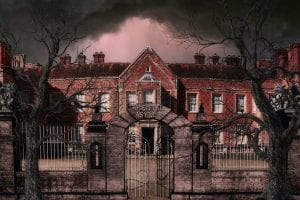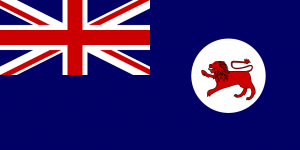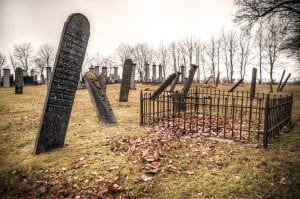This week the #ANZAncestryTime chat looked at prisoners and their crimes. It was decided to leave out convicts as we have already had that chat.

What sort of crimes or misdemeanours were your ancestors sentenced for? Was it overseas or in Australia?
How could I forget??!! The story of my great-grandfather’s imprisonment for refusing to vaccinate his children. I received help from @Historylady2013 with this.
Here’s a video of one of my criminal ancestors. He escaped from gaol. andrewredfern.com/william-redfer…
(My great uncle) Cecil Drew, aged 11 charged with having stolen forty-five packets of cigarettes from Wylie’s store, Nundah, was convicted, but not punished. Mr. Ranking advised the boy’s mother to give him a whipping. ‘Police Courts’, 24 August 1905
Interesting – I wonder who the packets really were for. Even with the small packet sizes it seems too much for an 11 year old when thy could of take sweets and other treats.
I was wondering if he was getting money for the stolen packets Fran #ANZAncestryTime unfortunately his life of crime didn’t end there!
Yes a possible option though I like to think that the child is influenced by an adult at some stage and not born bad.
I really feel his family were living on the breadline Fran so poverty was all he would have known as a child
A1 Only found this recently, my gggrandfather for receiving a grindstone, got three months instead of 12 . Read about it here https://t.co/VRgNCNZ4ks #ANZAncestryTime
— Sue Wyatt (@tasteach) September 20, 2022
A great article.. your ggg described as a hard-working man with a large family, any sentence would have been tough on them, so pleased he got a reduced sentence Sue
I have found a case about a murder in my family however I am still to find out the final outcome for the court case. Also a case of some stolen shoes and the good news is my great grand mother was acquitted.
Ooo that sounds intriguing, Fran! Whereabouts did the murder take place?
At a place called Boulder Bank in the Wairau in 1857, which is near Cloudy Bay in the north of the South Island.
Apparently a different boulder bank to the one that is a scenic reserve near nelson but I need to research more.
My g aunt Mary was the victim of a bigamist who we believed had 3 wives at the same time, one in England and two in Victoria. He was convicted & went to jail in Melbourne. A cousin by marriage in NZ was also convicted of bigamy before he married my cousin.
Their stories have both been added to WikiTree by me. Plenty of information from the newspapers.
I haven’t come across a criminal in my family as yet. We have a few victims of crime but no perpetrators
Also some for having neglected children and then the children entered as wards of state which have lots of records available.
My Aussie ones were for larceny mainly and in Tasmania where we have great records for prisoners and courts.
Our Tassie prison records portal libraries.tas.gov.au/family-history…
Tasmania always seems to do well with keeping records and making them available
Larceny, assault, and more assault. England, and NZ. I need to do some following up on the larceny, see if I can find out more.
I haven’t found any so far for my direct ancestors only for some of their siblings. We have a suspicion for my ggfather’s brother in Scotland. There is another one in the Highlands.
My Melvin ancestor is the one who was sentenced for the serious crime of perjury. The preceding case was a civil one and the judge deemed that five men had committed perjury. He was sent to jail at St a Helena prison. More later.
Unfortunately I don’t have all my records with me, but my Callaghan ancestors in Courtown had a few skirmishes with Drunk and disorderly and were fined, sometimes with a short sentence. There were also occasional punch-ups between kin

What sort of sentences did they get for the crime, were they imprisoned and, if so, where? Gaols, Children’s homes etc.
Poverty and large families often causes for crime.
I agree Sue. Why my relative ended up in the reformatory I think, plus his father died.
Both the bigamists went to jail as did the two criminals in Scotland. And the Victoria bigamist’s children were sent to industrial schools. The daughter came to NZ to be with her aunt, my gmother, and married here. As a child I met her spinster daughters.
I should say that my g aunt was born in 1839, her daughter in 1864, my gmother in 1859. It took a lot of research to find what happened to g aunt after she emigrated to Victoria. She died in an asylum, such a sad life.
I just found something I had already and never realised. GG Grandfather only got three years after the verdict returned was assault only, not murder. See 2nd case. Earlier court proceedings interesting too.
18 months later.. my great uncle was charged, having stolen on 27th February, 1907, at Clayfield, two razors, a razor strop, a cigarette case, a shaving brush, and other articles, valued in all at 15s., he was given five years at Westbrook Reformatory
A2 William Henry Clark forged his uncles signature. First Offenders Act meant he was liberated but with a surety. #ANZAncestryTime https://t.co/8XR7TM1JAr
— Sue Wyatt (@tasteach) September 20, 2022
My gg grandmother’s first husband was found guilty of a stealing a bushel of coal (a felony) in 1823 and was sentenced to 6 months hard labour in Maidstone County Gaol prisonhistory.org/prison/maidsto…
Over the weekend I was researching a possible DNA connection. Found three married sisters sent to New Norfolk asylum as their behaviour towards their children and neighbours was not acceptable, They were only in their twenties.
Again can read all their records for their time in the asylum and why they were put there libraries.tas.gov.au/family-history…
Stephen Melvin was sentenced to jail and while his crime was not commuted, the sentence was shortened due to the outcome of the trial of three of the men. He is shown on the Brisbane Gaol records but news stories say the men were brought up from St Helena.
My great grandfather Melvin’s brother was taken into a reformatory school but so far I’ve been unable to find the reason.

Did they serve the full sentence? Did they turn their lives around or return to a life of crime?
My cousin 3 times removed was murdered by her husband in 1877. Due to insanity he spent the rest of his life at Ararat Asylum
Sadly, the coal stealer levelled up to sheepstealing 15 years later and ended up transported. His son helped dob him in! Following his story helped me discount him as the father of my gg grandfather – he was on a prison hulk at the time of conception.
One of the few time being in prison had a positive outcome seeing it helped sort out parentage for you.
Exactly! Though I’d like to confirm right parentage with DNA, as my ancestor reverted to using the convict’s surname later in life rather than his dad/step-dad’s.
Have a baptism record where he’s illegitimate with his mother’s surname, a birth cert and census record with his dad/step-dad’s surname, then as an adult used the first husband’s surname. Very curious.
My ancestor did seem to turn his life around.. by 1915 he had enlisted with the A.I.F. and served in Egypt and France, so I feel very proud of him.
I don’t know about the two Scottish ones or the bigamist in Victoria, but the NZ one did behave himself and later married my cousin.
I have not found any further information that shows Francis McDonald entered into a life of crime after the assault verdict. Though reading the court proceedings in @PapersPastNZ details more about the crime. Though does not look like the full story.
Served full sentences. Some turned their lives around, some didn’t. One ended up joining the army which seemed to help.
Stephen Melvin’s sentence was commuted and there were changes to the law relating to perjury after the case. He had not been in trouble with the law before or after.

Where did you search for detailed information on the offence? Newspapers, archives etc?
I used newspapers, archival court documents at Qld State Archives as well as the judge’s notebooks and prison records. No bias, but there must have been something that decided the judge to charge them with perjury. The docs seemed a bit “he said” “she said”.
Newspapers often give a word by word of what was said or done, Can also see witnesses in case they are family members etc or neighbours.
Generally speaking court reporters write an accurate record of what happened though the more scandal-driven papers can be dodgy. Still worth checking archive docs if possible.
Newspapers, but Quarter Session records in local archives have been the best resource.
Newspapers & @nswarchives with court proceedings, jury notes, gaol records etc
If admitted to care home or asylum etc, check those records as some are more than 50 pages long giving lots of family info.
The childrens’ asylum where my relative was as a teenager was in Scotland. haven’t been able to see records yet.
Lots of court records for Tassie are online or you can visit the Archives to find those not digitized yet libraries.tas.gov.au/family-history…
I found detailed newspaper reports on Trove #LoveTrove and I was able to locate his index card from Westbrook Reformatory #QldArchives most of his sentence was served as a farm labourer for a local farming family
I found my 3xgreat grandfather having a very short sojourn in the Inveraray Gaol which has indexes online.
One of my best discoveries was my 2xgreat grandfather as a witness to an equity case. Confirmed relationships and that he was on the Tooloom goldfields while family was in Ipswich
Don’t forget to check the UK newspapers via FindMyPast or with your NLA library card. Some of the crimes are reported there, not necessarily major offences.
Petty Sessions records either in Irish Newspapers or in the FindMyPast indexes can be very helpful.
If your relatives were in Argyll you can search the Inveraray Jail indexes at this page. inverarayjail.co.uk/our-history/
I always search newspapers for any interesting things when I write my biographies, but often the siblings who have records.
Blog posts about prisoners or criminals in our families
Pauleen: Vaccinations, Petty Session records, Shooting case,
Andrew: Colonial conviction,




